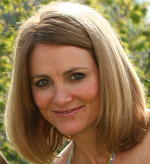We are delighted that the co-founder of London Writers’ Club, literary agent and writer, Jacqueline Burns, will be launching her book, Write a Bestseller at November’s event. Here we asked her some quick fire questions:
1/Please give us a brief biog.
My mum gave me my first bookish job; sharpening pencils and arranging textbooks. After meeting Alice Walker while working the book tent at Adelaide Writers’ Week I was set on a career in publishing. Moving to London, my sister told me they needed editorial help at Random House and from there I worked my way up to commissioning the personal development and parenting list, eventually moving to Harper Collins before setting up my own agency, Jacqburns.com and co-founding London Writers’ Club. I help authors brainstorm their ideas to inject something really special into their book, I mentor them throughout the writing process and help them put a commercial twist on their work. I’ve written and ghost-written books on a range of subjects from neurology to forced marriage.
2/Please could you tell us what your new book is about?
The idea that while you can’t guarantee a bestseller, there are classic ingredients that bestsellers possess, a lot of them learnable. And there are things that will harm your chances that you can avoid.
3/Why did you decide to write this book?
When Victoria Roddam of Hodder approached me to write the book, my first thought was, ‘what can I say that hasn’t already been said? Then it occurred to me that there was a lot of new material: the recent mega sellers and the controversy they’d generated; the rise of indy publishers; and the idea of that authors need to be Authorpreneurs. Suddenly I had a lot of things to say.
4/How can it help unpublished writers?
It gets inside the mechanics of a bestselling book. It takes a writer from the first stages of writing, redrafting and publishing through to promoting their book and beyond. They can pick up the thread of where they are at in their writing and progress or go back to basics if needed to improve any areas they have weaknesses in. Let’s face it we all do some things better than others. And we can have blind spots, overlooking things that could radically improve our chances of getting published that we are not aware we need to do.
5/What are the three common mistakes made by unpublished writers?
1. Not really knowing what their book is about.
2. Writing without knowing their characters’s back story. If you don’t know it (and I urge you to write it as a separate exercise) then you may face difficulties in knowing how your character will act when you are writing the novel itself.
3. Thinking that they need a literary agent before they can put their work out into the world.
6/What top tips could you give to unpublished writers?
1/
Be honest about your writing style and who you are. I’m a messy creative, I do get up at dawn when writing but I don’t pick dew-kissed flowers to adorn my pristine desk. I make coffee and shove aside the debris from the previous day and start.
2/
Know your theme and your concept and write it on the ‘wall’ otherwise you’ll go off track. It can change but be aware if it does and write accordingly.
3/
Ensure you really have a story rather than just a sequence of events. Put it into a simple Red Riding Hood format. Does it stand up? Is there the equivalent of a character we care about, something they want or a quest they are on, a danger or obstacle, and a thing or person who saves the day?
4/
Develop a quick three line pitch – and continually hone it – so that you can tell people about your book. Easy word of mouth is gold dust.
If you really believe in the work then take small steps to start creating word of mouth around your story.
7/Finally, how did you find the writing process?
This is the seventh book I’d written and, okay I’m being dramatic, but it nearly killed me. Writers’ block struck for the first time. I think it was that it was so circular, writing about writing.
The only thing that got me through was sitting down to write at a regular time for 1.5 hour blocks, and, a big one this, being unconcerned with the quality of the writing. I also found that being honest about my writing style, chaotic, helped free me up and just let me write.

